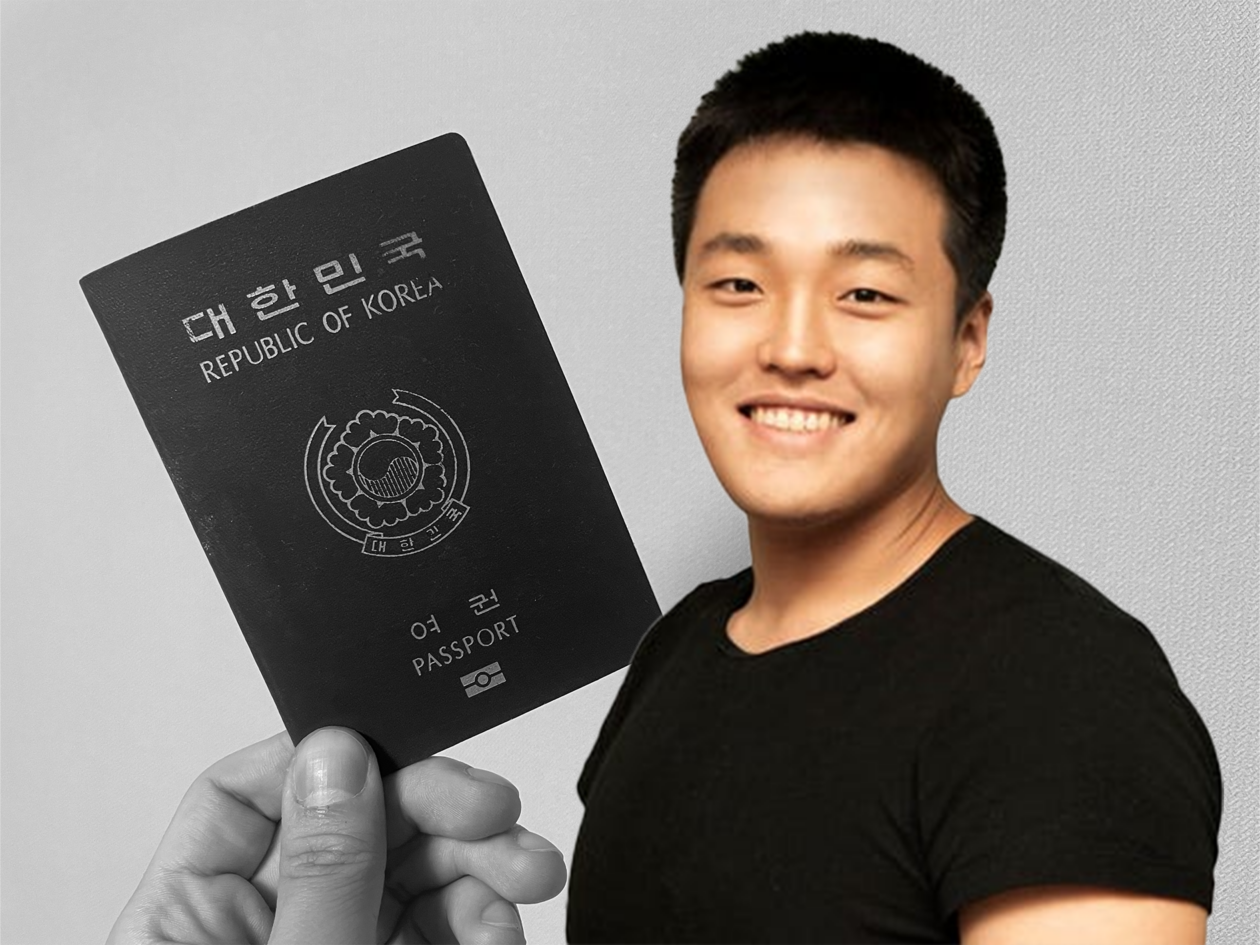South Korea’s Foreign Affairs Ministry indicated that the passport of Terraform Labs Pte. founder Kwon Do-hyung remains valid, amid speculation in local media it had expired, preventing him from travel as he faces calls to be extradited on charges related to the collapse of his cryptocurrency project in May.
The location of the chief executive officer of Terraform Labs, known as Do Kwon, is unknown, but the foreign ministry in comments to Forkast suggested his travel document will be valid for two more weeks, according to standard procedures.
The ministry issued an “inability to deliver” notice on Do Kwon on its website on Oct. 5, after requesting the Terra chief return his passport to authorities voluntarily. The notice expires Oct. 19, but stipulates it gives the recipient another two weeks to hand back the travel document before it is invalidated. Local media had reported the passport expired on Oct. 19.
“I think the initial [media report] was mistaken,” an official in the foreign ministry’s passport office told Forkast in a phone interview. “It is not two weeks from the notice, it is two weeks from the termination of the notice,” said the official, who declined to be named, citing ministry policy.
See related article: Terra CEO Do Kwon to lose his passport within a month
However, the official added that the ministry does not comment on specific cases of individuals for privacy reasons and that the explanation covers the general procedures of nullifying a passport.
The ministry declined to comment on Kwon’s legal status as a South Korean citizen overseas when his passport is canceled. The ministry official did say an individual can still return to Korea voluntarily after the cancellation by filing an application to travel at a South Korean embassy.
Forkast requested comment from Terraform Labs and Do Kwon on the status of his passport nullification, but had not received a reply at the time of publication.
Unchained
In an interview on the Unchained Podcast on Tuesday, Kwon said that the cancellation of his passport is not something he is concerned about.
“I’m not using it anyway … So I can’t see how that makes a difference to me,” said Kwon, who declined to say whether he has travel documents issued by other countries. Kwon had previously been living in Singapore and he said in the podcast he has good reasons for not saying where he is now living
“The main reason why I don’t want to talk about my location to the media is because when the crash happened in May, there were lots of situations where personal security was threatened,” said Kwon. He said that misinformation about him is being circulated in the media.
See related article: S.Korea’s parliament audit on Terra-LUNA falls short of expectations
“We would read media reports like, ‘Kwon is on the run,’ which is absolutely not true.” he said in the podcast. Kwon said that his initial move to Singapore predates any sign of the collapse of Terra-LUNA — “We went through proper procedures to pay all residual taxes [in South Korea] and applying (for) employment visas to Singapore and things like that to go.”
Kwon was long presumed to still be in Singapore, but local authorities last month said he was not in the city-state.
During his interview, Kwon also issued a public apology to those damaged by the crash of Terra’s stablecoin and cryptocurrency, which is estimated to have wiped out over US$60 billion worth of crypto market capitalization, along with the funds of hundreds of thousands of investors.
“I am sorry,” the Terra chief said. “I believed in the status of UST (Terra stablecoin), and I do understand that my beliefs and statements about how stable and safe UST would be, led a lot of traders and holders without the tools to understand the complex economic mechanisms underpinning UST to gain confidence in a system that ultimately failed.”
See related article: For South Korea, making Do Kwon pay for his alleged crimes easier said than done
Allegations
The coming invalidation of Kwon’s travel documents stems from the South Korean prosecutors’ ongoing investigation into the Terra-LUNA collapse.
They have issued an arrest warrant and requested the Interpol ‘red notice’ — which asks law enforcement worldwide to locate and provisionally arrest a person pending extradition, surrender, or similar legal action.
Kwon, who told the Unchained podcast that he has not heard anything from Interpol, is being sought under multiple charges in South Korea, including fraud and violation of the Capital Markets Act.
The prosecutors leveled the latter charge on the allegation that Terra’s LUNA cryptocurrency is an investment contract security, which would make Terraform Labs an unregistered issuer of securities.
Kwon contests that allegation. “We don’t think that any of the charges pertaining to the Capital Markets Act is applicable because the government’s stance has been that cryptocurrencies shouldn’t be governed by Capital Markets Act, that they’re not securities,” he said in the Unchained podcast.
See related article: South Korea’s all-encompassing crypto law is coming — what we know so far
Up until this year, South Korea’s top financial regulator, the Financial Services Commission (FSC) has stated that cryptocurrencies are not financial assets.
However, more recently the governor of the Financial Supervisory Service, an agency under the FSC, said crypto can be judged as securities and that the prosecutors have also the right to make that decision.
So far, cryptocurrencies are not officially classified by the South Korean government as financial investments, but the country is developing a new regulation that would categorize them into two: security and non-security cryptocurrencies.





